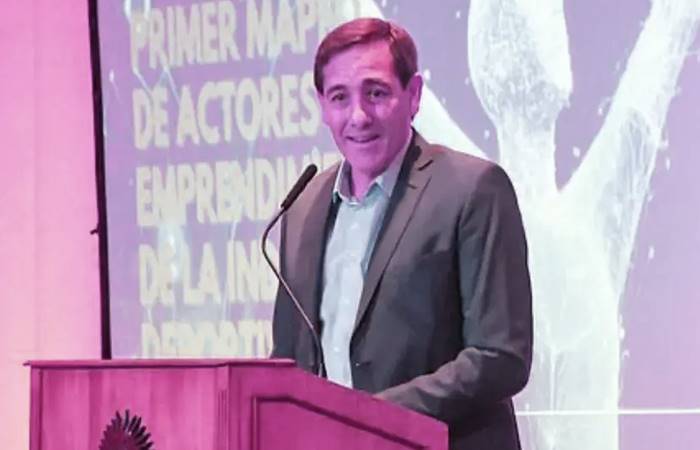In a shocking turn of events, Argentina has dismissed its deputy sports minister, Julio Garro, after he suggested that Lionel Messi should apologize for his teammates’ involvement in singing a racist and homophobic song aimed at France. This incident followed Argentina’s recent Copa America victory, where tensions and emotions were running high.
The Incident
The controversy erupted after Argentina’s 1-0 win over Colombia in the 2024 Copa America final. Midfielder Enzo Fernandez livestreamed a video of himself and his teammates singing the offensive song on the team bus. The song mocked France’s players for their African heritage and included highly discriminatory language. The video quickly went viral, drawing widespread condemnation from fans and media alike.
Julio Garro’s Controversial Comments
In the wake of the backlash, Julio Garro, then the under-secretary of sport, commented on the issue during an interview with radio station Urbana Play. Garro suggested that Lionel Messi, as the team captain and a global icon, should apologize for his teammates’ actions. He also implied that Claudio Tapia, the president of the Argentine Football Federation, should offer a public apology.
Garro’s comments were met with immediate backlash. Critics argued that his remarks were inappropriate and did not align with the sentiments of the Argentine public or the government.
Presidential Response and Garro’s Dismissal
Just hours after Garro’s interview, Argentina’s President Javier Milei announced Garro’s dismissal. The president’s official social media accounts issued a statement emphasizing that the government does not have the authority to dictate what the national team or any citizen should think, say, or do.
RELATED: Why Man United and Juventus Want Bologna’s Miracle Worker Thiago Motta
“The Office of the President states that no government has the right to tell the Argentine national team, world champions and double Copa America champions, or any other citizen, what to comment, what to think and what to do,” the statement read. “That is why Julio Garro ceases to be the under-secretary of sport.”
Reactions and Apologies
The fallout from the incident prompted Enzo Fernandez to issue a public apology on social media. In his heartfelt message, Fernandez expressed regret for his actions and emphasized that the offensive song did not reflect his beliefs or character.
“I want to apologize sincerely for a video posted on my Instagram channel during the national team celebrations,” Fernandez wrote. “The song includes highly offensive language and there is absolutely no excuse for these words. I stand against discrimination in all forms and apologize for getting caught up in the euphoria of our Copa America celebrations. That video, that moment, those words do not reflect my beliefs or my character. I am truly sorry.”
Broader Implications
This incident highlights the ongoing challenges faced by sports teams and their governing bodies in addressing issues of racism and discrimination. While the Argentine national team has celebrated significant victories, this controversy serves as a reminder of the responsibilities that come with public visibility and influence.
The dismissal of Julio Garro underscores the Argentine government’s commitment to upholding the principles of free speech and personal responsibility. It also sends a clear message that discriminatory behavior will not be tolerated, regardless of the context in which it occurs.
The firing of Argentina’s deputy sports minister for suggesting that Messi apologize marks a significant moment in the ongoing struggle against racism and discrimination in sports. As the nation reflects on this incident, it is hoped that it will lead to greater awareness and proactive measures to combat such issues in the future.














 Palmeiras vs Chelsea 1-2 Highlights | Club World Cup
Palmeiras vs Chelsea 1-2 Highlights | Club World Cup  Diogo Jota Dies in Tragic Car Crash at 28 – Football World Mourns
Diogo Jota Dies in Tragic Car Crash at 28 – Football World Mourns  Colorado Rapids vs Sporting Kansas City Preview, Prediction, H2H, Lineups & Team News | MLS
Colorado Rapids vs Sporting Kansas City Preview, Prediction, H2H, Lineups & Team News | MLS  Dallas vs Minnesota United Preview: Prediction, Lineups, H2H & Team News | MLS
Dallas vs Minnesota United Preview: Prediction, Lineups, H2H & Team News | MLS  New York City FC vs Toronto FC: Preview, Prediction, H2H, Lineups & Team News
New York City FC vs Toronto FC: Preview, Prediction, H2H, Lineups & Team News  Real Madrid vs Juventus 1-0 Highlights | Club World Cup
Real Madrid vs Juventus 1-0 Highlights | Club World Cup  Manchester City vs Al-Hilal 3-4 (AET) Highlights | Club World Cup
Manchester City vs Al-Hilal 3-4 (AET) Highlights | Club World Cup